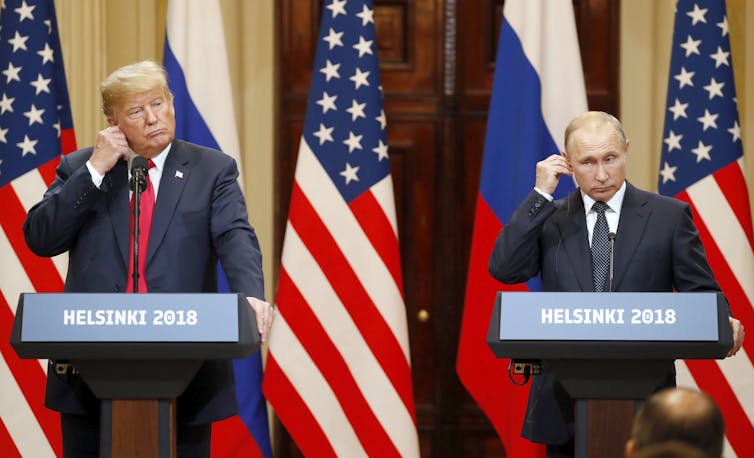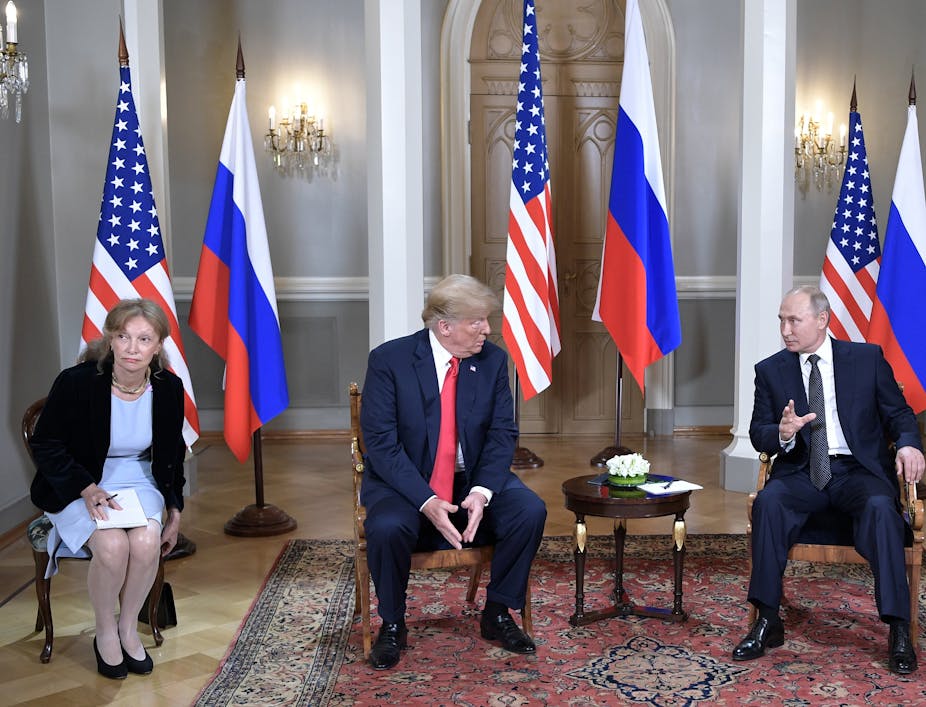Interpreters play a crucial role in high-level multilingual meetings. Donald Trump’s recent summit with Russian president Vladimir Putin took a rather unexpected turn for the US president, resulting in much controversy over what was said during it. And now his interpreter has been caught up as well.
Trump’s meeting with Putin has created much turmoil over the use of a double negative (which is when two negative grammatical structures are used in the same sentence in order to convey a positive meaning). As a consequence, it is unclear whether during his meeting with the Russian head of state, Trump condemned or refuted Russia’s meddling in US elections. And to make matters worse, only the two presidents and their respective interpreters were present.
In order to shed light on what was said exactly during the meeting, American politicians, such as Democratic Senator Jeanne Shaheen, have called for Marina Gross, Trump’s interpreter, to testify before the US Congress. However, subpoenaing her may not bring us any closer to knowing actually what was discussed during the meeting. More importantly, it risks opening a Pandora’s box for the interpreting profession, and could jeopardise future multilingual meetings, too.
When notes aren’t notes
There are many pictures of the meeting circulating online in which Gross is seen sitting next to Trump, holding a pen and notepad. This illustrates well what interpreters do when they work in this way. In a nutshell, interpreters take notes while a participant is speaking, and then render what the participant said into another language.
However, interpreters’ notes differ from other types of notes used to draft the minutes of a meeting. Interpreters do not write down a verbatim account of what is being said, just some key words or ideas. When it is their time to interpret, these words and ideas trigger the interpreter’s short-term memory, enabling them to give a full rendition of what was uttered.

Because these notes are essentially meant to serve as in-the-moment memory aids, they tend to be ephemeral. Based on their notes alone, it’s difficult for interpreters to remember exactly what was said in any given meeting, whether a few months, weeks or even days afterwards. And given the demanding nature of the job, it would be particularly difficult for any interpreter to recall exactly conversations conducted in a two-hour meeting.
Given that in this case a president’s future could hang in the balance, there is no doubt that an interpreter would be hard pressed to provide a word-for-word account with full confidence in its accuracy. But even if this were possible, there are other issues besides.
Trust and jeopardy
Demanding that any interpreter testify as to the content of a meeting puts them in a bind. Interpreters abide by some fundamental tenets, one of the most sacrosanct being that of confidentiality. Confidentiality is pivotal in establishing a relationship of trust between the interpreter and the other parties, and without that trust, a meeting’s outcomes may be jeopardised. It would be extremely detrimental to the profession if clients refrained from expressing their views for fear that the interpreter could be later forced to divulge confidential information.
Historically, interpreters have been variously perceived as friends, allies, foes, enemies and traitors. Since World War II, professional bodies and organisations have worked hard to raise the profile of the profession and ensure interpreters are recognised as the highly skilled professionals they are. Asking Trump’s interpreter to testify could be a game changer for the whole profession.
Ever since it was announced that Gross may be called to testify, many interpreters and their professional bodies, including the prestigious International Association of Conference Interpreters, have taken to social networks to raise their concerns. As a lecturer and interpreter trainer myself, I feel strongly that calling on interpreters to shed light on what was (or wasn’t) said may be extremely damaging to the profession. It will also certainly send a worrying signal to anyone communicating via interpreters in the future, not least Trump.

